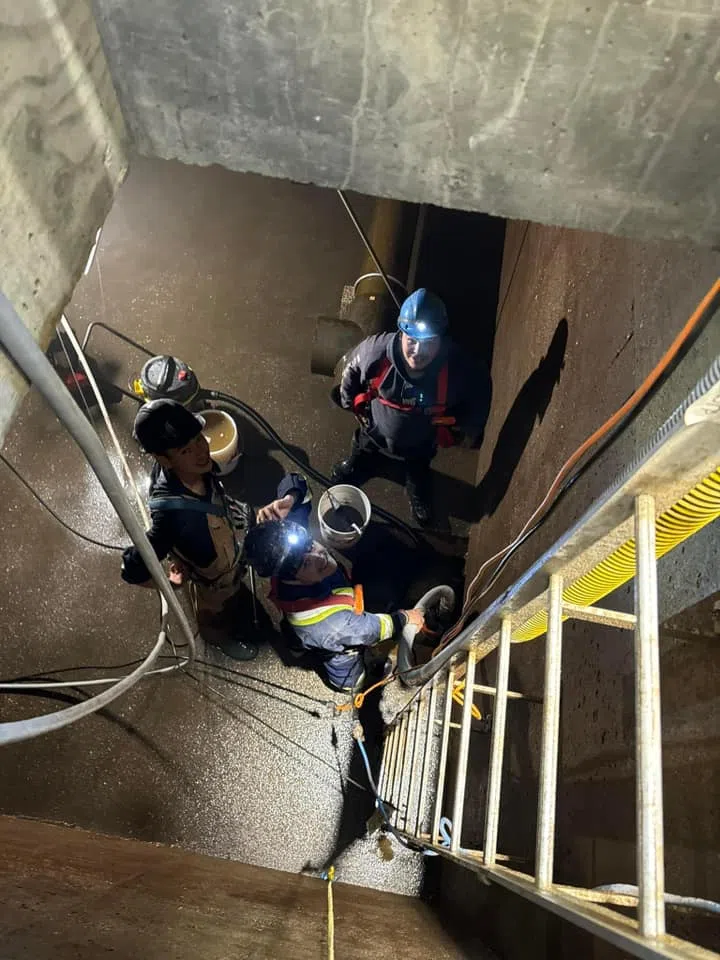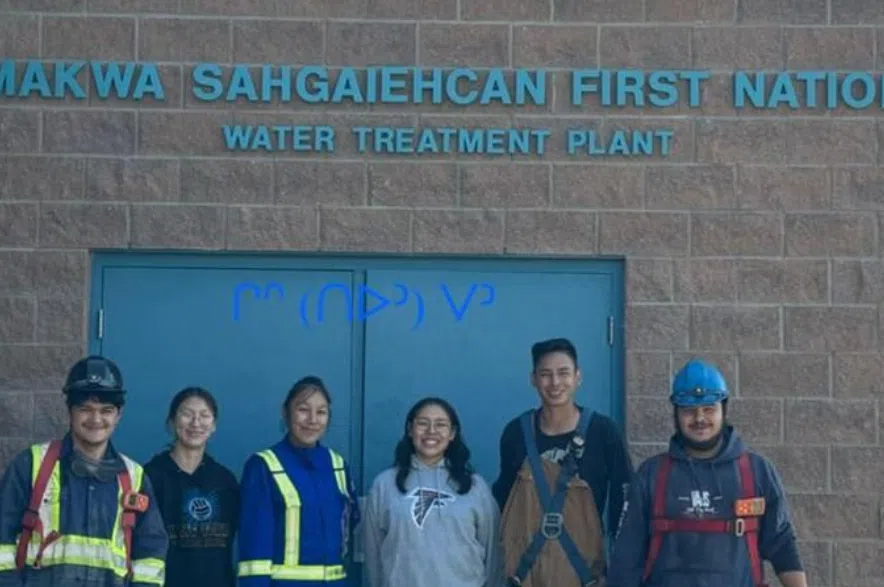The water looked weird to Melanie Kytwayhat.
About six years ago, she was about to give her baby, then a toddler, a bath but her community of Makwa Sahgaiehcan First Nation was under a boil water advisory.
‘I’m like ‘What the heck? No, no, why do we have this orange water,’” she said, noting the Makwa Sahgaiehcan Water Treatment Plant had brand new equipment.
“I did not bath my baby in that water that day and then I started to take this boil water advisory a little bit more serious and then thinking and realizing ‘Damn, we’ve been on this for a long time.’”
It turned out there was something not quite right and though she hadn’t been working there at the time, three days later, Kytwayhat’s father and the leadership asked her to go and check on things. What she found – an unsupervised trainee operator who had only been on the job for a month – led her to an unexpected passion for ensuring the next generation of plant operators were knowledgeable and the community was safe and healthy.
“People should know this is a really, really important job,” she said.
“It’s a lifeline, people depend on water to live whether they realize that or not, that is the truth.”

The next generation of operators get to work at Makwa Sahgaiehcan Water Treatment Plant. (Makwa Sahgaiehcan Water Treatment Plant/Facebook)
According to Lisa Bains, engagement co-ordinator Saskatchewan First Nation Water Association, it was Kytwayhat’s passion and innovation that made her stand out.
“She takes time to help teach within our organization, she’s always involved in teaching and developing classes that have the First Nations perspective included in them,” she said of the woman who also sits on the SFNWA board.
As a result, the SFNWA nominated her for the National First Nations Water Leadership Award and it was something Kytwayhat wasn’t prepared for.
“I just didn’t believe that at all, I don’t feel like I’m deserving of that because, like I said, I’m just a water plant operator,’ she said.
“I’m just there to do my job and to take care of my community.”
Bains said the operator is not only a strong female voice in the trades industry but also cares about the spirituality of water along with the practical component.
“There’s some people who are always willing to take on one more thing and guide the future,” she said.
“I’m hoping that’ll…inspire them to be the same kind of people that Melanie is, where you just take on the next level.”

The next generation of operators at Makwa Sahgaiehcan Water Treatment Plant. (Makwa Sahgaiehcan Water Treatment Plant/Facebook)
Read more
- Ottawa removes funding caps for residential school searches
- Interpretative panels welcomed at Sask. Residential School Memorial
Kytwayhat’s journey into water began 18 years ago when the resident graduated from a power engineering program in Meadow Lake, but her dad asked her to help her community.
“Our water plant was going through a lot of issues back then with the operators and we were on a boil water advisory,” she said.
Her father, then one of the leaders of the community, asked her to come work at the plant and she obliged by working for a year before leaving to work in the field she originally trained in. Still, the water world wasn’t done with her. Three years after she went to work in Alberta – in water treatment – she came home and became the backup operator.
According to the Government of Canada’s website, since 2015, the progress on lifting long-term water advisories is now past 80 per cent. To be self-sufficient, Kytwayhat said training youth, helping the operators make connections with others, and giving people opportunities, will lead to a healthier community.
“We’re training our workers that do come to work with us to work safely, to understand their role in this whole picture,” she said.
The water keeper said what drives her on to make sure the water flow is the love for her family and compassion for their friends, peers and the Makwa residents.
“I remember that moment when I looked in the bathtub and I didn’t want to bath my baby in there,” she said.
“That was such a long time ago but that still stays with me, and I don’t want other mothers to go through that – other parents – I don’t want babies to go through that.”
Read more











